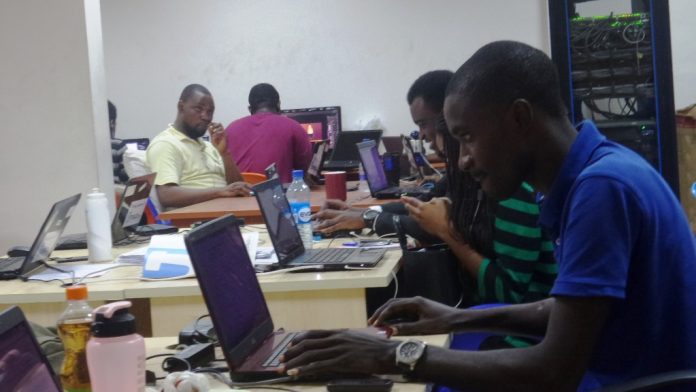Eighteen months ago, Nigeria-based Konga, one of Africa’s biggest online retailers, moved its headquarters from the affluent business districts of Victoria Island to Yaba, a suburb of Lagos, Nigeria. By December the same year, Africa Internet Group, a leading online conglomerate backed by Germany’s Rocket Internet, South African mobile phone giant MTN and Sweden’s Millicom, moved six of its tech firms, including Hellofood and Easy Taxi, to Yaba.
Why Yaba? At first glance, Reuters reports, Yaba is like many other parts of Nigeria’s sprawling commercial capital: a cacophony of car horns and shouting street vendors, mingling with exhaust fumes and the occasional stench of sewage.
But in between the run-down buildings in this seemingly inauspicious part of Lagos, a city of around 21 million, tech start-ups are taking root and creating a buzz that is drawing international venture capitalists and more established digital firms.
African tech centers are a recent phenomenon that mixes web business concepts borrowed from other parts of the world with start-ups focused on African problems to create opportunities in areas such as mobile payments and e-commerce. Notable examples are Kenya’s “Silicon Savannah.” South Africa’s “Silicon Cape” and Rwanda’s “kLab” in Kigali. In many instances, however, they struggle to achieve critical mass by giving birth to the few successful start-ups that will in turn attract more talent and money.
Yabacon Valley, as the high-tech innovation hub has come to be known, started life in 2010, the way other African tech enclaves do: with one building earmarked as an incubator for talent supported by overseas investors, in this case the Co-Creation Hub (CCHub), backed by the founder of eBay. The government chipped in with another building in 2013, the Information Technology Developers Entrepreneurship Accelerator (iDEA), for would-be entrepreneurs to get access to docking stations, meeting rooms and mentors.
Google and Microsoft ran coding workshops, while a deal between CCHub, the Lagos state government and local telecoms firm MainOne brought cheap high-speed Internet via fibre optic cable.
Drawing on a pool of talent from the nearby University of Lagos and Yaba College of Technology, Yaba today has a growing number of established tech companies, underpinning hopes that the area, where rents are relatively cheap, might breed success.
“From an investor’s perspective, Nigeria is so much bigger. The Kenyan market is very small,” says Kresten Buch who has invested in tech start-ups in South Africa, Kenya and Nigeria. Read the original Reuters story here.













